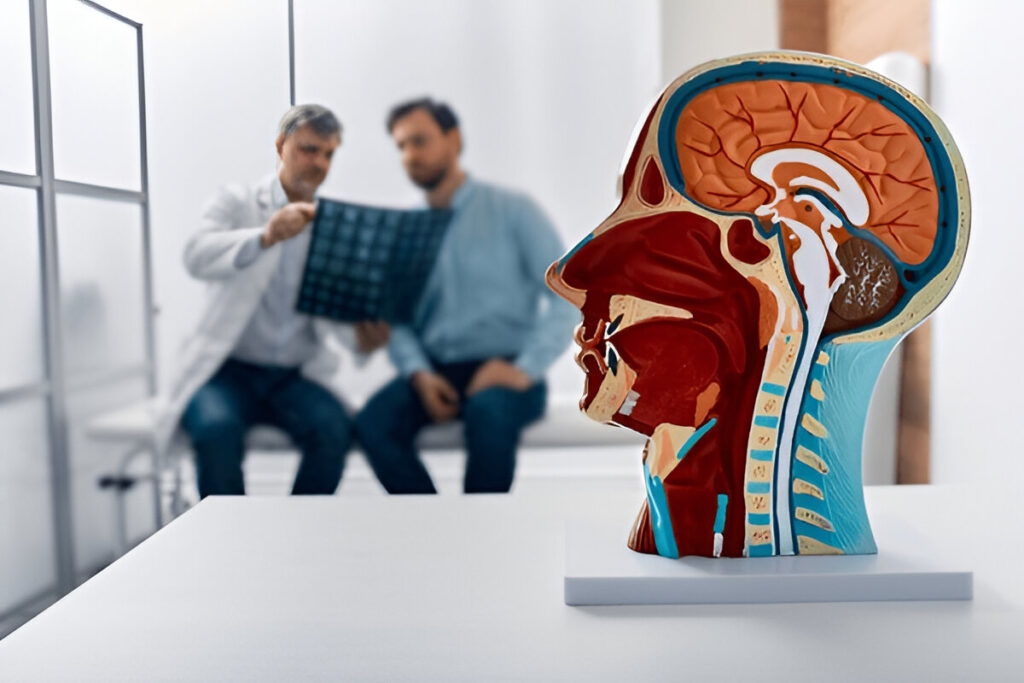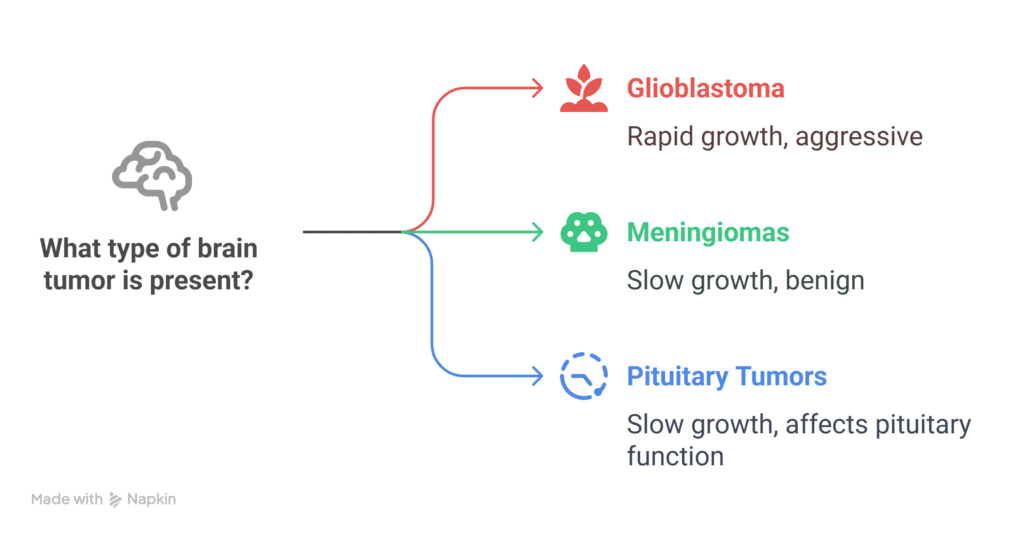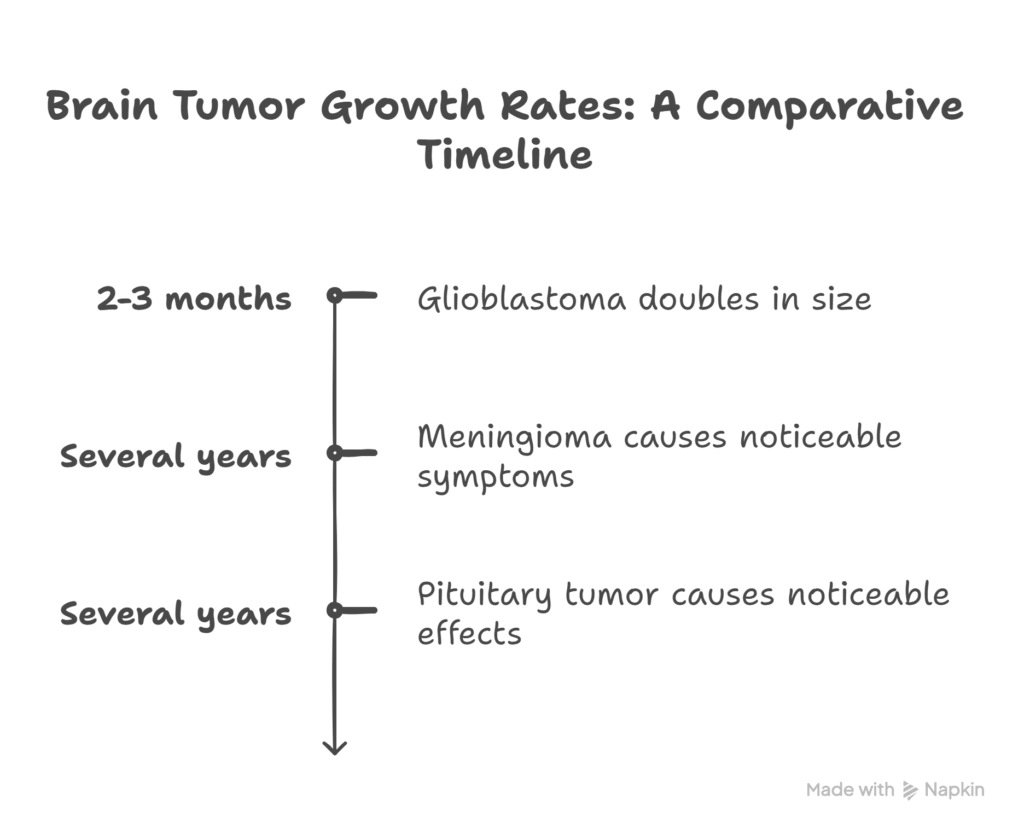When it comes to brain tumors, one of the most common questions people have is how much time does a brain tumor take to grow? The process of tumor growth can vary significantly depending on the type, size, and location of the tumor. Understanding the factors that influence the growth of a brain tumor is crucial for those who may be dealing with symptoms or who are worried about the potential for a brain tumor.

In this blog, we will explore how brain tumors grow, the different types of brain tumors, and the factors that influence their growth. We’ll also address some common concerns, including how long it takes for symptoms to develop, and what steps you can take if you’re concerned about a brain tumor. Dr. Arun Saroha, a leading neurosurgeon specializing in brain and spine conditions, will also offer insight into diagnosing and treating brain tumors.
Understanding Brain Tumors
Before we dive into the specifics of how much time a brain tumor takes to grow, it’s important to understand what a brain tumor is. A brain tumor is an abnormal growth of cells within the brain or the tissues surrounding the brain. There are two main categories of brain tumors:
- Benign Tumors: These are non-cancerous tumors that grow slowly and are less likely to spread to other parts of the brain or body. While they can cause problems due to their size or location, they tend to have a better prognosis and may be treatable with surgery or other methods.
- Malignant Tumors: These are cancerous tumors that grow more rapidly and can spread to other areas of the brain or body. Malignant tumors are generally more serious and require more aggressive treatment, including surgery, radiation, and chemotherapy.
The rate at which a brain tumor grows largely depends on its type and other individual factors, such as age, overall health, and the tumor’s location.
How Much Time Does a Brain Tumor Take to Grow? The Growth Process Explained
The question of how much time a brain tumor takes to grow is complex because it varies widely based on several factors. Some tumors grow quickly, while others can take years to develop noticeable symptoms. Here’s a breakdown of the key factors that determine how fast a brain tumor grows:
- Type of Tumor
The type of brain tumor plays a crucial role in determining how quickly it will grow. Some types of tumors are more aggressive and grow rapidly, while others are slow-growing. For instance:

- Glioblastoma: This is one of the most aggressive types of brain tumors. It can grow quickly, sometimes doubling in size within weeks or months.
- Meningiomas: These are typically slow-growing benign tumors. They may grow over several years without causing noticeable symptoms.
- Pituitary Tumors: These tumors also tend to grow slowly, but they can cause symptoms if they affect the function of the pituitary gland.
- Tumor Location
The location of the tumor in the brain can influence its growth rate. Tumors in certain areas of the brain, like the frontal lobe, may grow more slowly than those in the brainstem or near vital functions. Additionally, tumors located in areas that are harder to access or operate on may be diagnosed later, making their growth seem more rapid.
- Tumor Grade
Tumor grade is another factor that determines how much time a brain tumor takes to grow. A tumor’s grade is determined by how abnormal the tumor cells appear under a microscope:
- Low-grade tumors: These are less aggressive and grow slowly. For example, a grade I or II tumor may take several years to show symptoms.
- High-grade tumors: These tumors are more aggressive and tend to grow quickly. Grade III or IV tumors, like glioblastomas, can double in size within weeks.
- Age and Health of the Patient
Younger patients tend to have a stronger immune system, which can sometimes slow the growth of a tumor. In contrast, older adults may experience faster tumor growth due to a less robust immune response. Additionally, a person’s overall health can impact how the body responds to a tumor’s growth. If the tumor is causing increased pressure on the brain, symptoms may appear faster.
- Genetic Factors
Some brain tumors may be linked to genetic conditions that cause abnormal cell growth. People with a family history of brain tumors or conditions like neurofibromatosis may be at higher risk for developing tumors that grow more quickly.
Symptoms: How Long Does It Take for Symptoms to Appear?
While we can’t pinpoint exactly how much time a brain tumor takes to grow, the appearance of symptoms depends largely on its size, location, and type. Brain tumors may not cause noticeable symptoms until they have reached a significant size. Here are some factors that affect how quickly symptoms develop:
- Size and Pressure: As the tumor grows, it can put pressure on surrounding areas of the brain, leading to symptoms such as headaches, nausea, or vision problems. In the case of more aggressive tumors, symptoms may appear more quickly.
- Tumor Location: Tumors located in areas of the brain responsible for motor skills, vision, or cognitive function may cause symptoms sooner than those in less critical areas.
- Benign vs. Malignant: As mentioned earlier, benign tumors tend to grow more slowly and may not cause symptoms until they are quite large. Malignant tumors, on the other hand, grow rapidly and can cause symptoms within weeks or months of development.
How Much Time Does a Brain Tumor Take to Grow? Case Examples

Let’s consider a few examples to understand how much time a brain tumor takes to grow in different cases:
- Glioblastoma: Glioblastomas are aggressive brain tumors that grow rapidly. In some cases, symptoms may develop within a few weeks to a few months. These tumors often double in size in just 2 to 3 months, and treatment must be started as soon as possible to address the tumor and reduce symptoms.
- Meningioma: Meningiomas, on the other hand, are typically benign and slow-growing. It may take several years for a meningioma to cause noticeable symptoms. Many people live with meningiomas without knowing they have them until they are discovered incidentally during an MRI or CT scan for another condition.
- Pituitary Tumors: Pituitary tumors usually grow slowly and may not cause symptoms for years. When symptoms do occur, they may be subtle, such as hormonal changes or vision problems. These tumors can take several years to grow large enough to cause noticeable effects.
Diagnosis and Treatment: What to Do If You Suspect a Brain Tumor
If you’re wondering how much time a brain tumor takes to grow, it’s important to remember that early detection is key to effective treatment. If you are experiencing symptoms such as persistent headaches, nausea, seizures, or vision problems, it’s essential to see a specialist as soon as possible.
Dr. Arun Saroha, a leading neurosurgeon, is highly experienced in diagnosing and treating brain tumors. If a brain tumor is suspected, Dr. Saroha will typically perform imaging tests like an MRI or CT scan to determine the size, location, and type of tumor. Based on the results, he can recommend the best course of treatment, which may include surgery, radiation therapy, or chemotherapy.
Conclusion: How Much Time Does a Brain Tumor Take to Grow?
So, how much time does a brain tumor take to grow? The answer depends on various factors, including the type of tumor, its location, and the overall health of the patient. While some tumors grow rapidly, others take years to become noticeable. Regardless of the growth rate, early diagnosis and treatment are crucial for the best possible outcome.
If you’re experiencing symptoms that may indicate a brain tumor or if you’re simply concerned about brain health, it’s essential to seek professional guidance. Dr. Arun Saroha, with his expertise in neurosurgery, can provide accurate diagnoses and tailored treatment plans to help manage brain tumors and improve your quality of life.
Don’t hesitate to reach out to Dr. Arun Saroha Neurosurgeon for a consultation if you have any concerns about brain tumors or brain health. Early intervention can make all the difference in your treatment journey.
FAQs – Brain Tumor Growth & Causes
How quickly do brain tumors grow?
Growth speed depends on the tumor type. Some grow slowly over years (benign), while others (malignant) can progress rapidly within weeks or months.
Can you live 20 years with a brain tumor?
Yes, many people live long lives with benign or well-managed brain tumors, especially if diagnosed early and treated effectively.
How long does a tumor take to grow?
Tumor growth varies—some grow so slowly they go unnoticed for years, while others can expand quickly and require urgent treatment.
Can stress lead to a brain tumor?
No, there is no scientific evidence linking stress directly to brain tumor formation. However, chronic stress can affect overall brain health.









